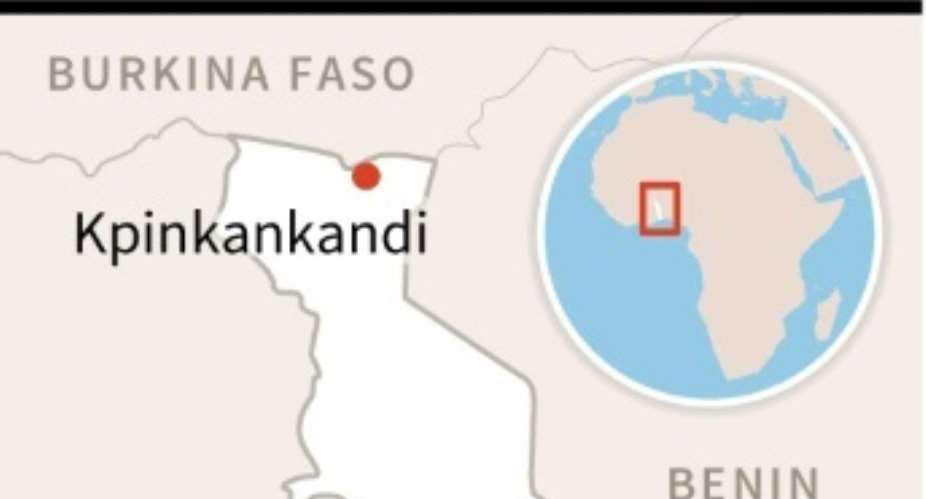Constitutional reform in Togo, criticised by the opposition as a power grab, has sparked heated debate on the streets of the capital as voters gear up to elect MPs next month.
Lawmakers in the West African country on Monday voted for a switch from a presidential to a parliamentary system, giving parliament the power to elect the president.
"I am against this constitutional reform... they should have held a national consultation to get the people's opinion," photographer Claude Vivor told AFP on the streets of Lome.
"It is a constitutional coup," he said.
The president will be chosen "without debate" by lawmakers for a single six-year term, and not by the public, according to the new text which was adopted by the National Assembly almost unanimously.
"It means that we are no longer going to elect the president as we currently do," motorbike taxi driver Yaovi Baka told AFP on a roadside leading to the working-class district of Adidogome.
Opposition fears
The reform also creates the role of president of the council of ministers, which will have the "full authority" to manage government for a six-year term.
It is unknown whether the term can be renewed, leading to fears that long-serving President Faure Gnassingbe will be able to remain in power indefinitely.
 Opposition fear President Faure Gnassingbe will be able to remain in power indefinitely. By Ludovic MARIN (AFP)
Opposition fear President Faure Gnassingbe will be able to remain in power indefinitely. By Ludovic MARIN (AFP)
"It is a technique to keep President Faure Gnassingbe in power," Baka added.
Political tensions mounted in Togo this week as police broke up an opposition news conference amid a backlash over the reform.
The editor of a Togolese newspaper was also arrested on Thursday, as media watchdogs warn of a press clampdown, less than a month before the legislative and regional elections on April 20.
Peace?
But Afi Xolali Pascaline Dangbuie, who runs a food shop and heads Adidogome's network of market associations, sees things differently.
Dangbuie is clear about what she wants: "peace".
"We voters will give the deputies the power to elect the president... at every presidential election, there is a great deal of tension in the country.
"What's more, the expenses involved are enormous.
"These funds could be used to do something else to benefit the population," Dangbuie said, in front of her stall.
Since 1990, when democracy was established in Togo, the result of every presidential election has been contested by the opposition.
"Most of the crises recorded in the country are linked to the election of the president," agreed lawyer Samir Ouro Sama.
"We have had the experience of a presidential system over the past 60 years and we know what that has led to.
"We needed to find a mechanism that would allow us to experiment with something new.
"But I note that there was a lack of education in the run-up to this reform."
In 2019, members of parliament revised the constitution to limit presidential terms to two, but it did not apply retrospectively, leaving Gnassingbe free to stand for the next two elections.
Gnassingbe succeeded his father, who had ruled with an iron fist for almost 38 years.





 Court dismisses Serwaa Amihere case against Henry Fitz, two others
Court dismisses Serwaa Amihere case against Henry Fitz, two others
 Stolen BRVs: Bi-partisan parliamentary probe non-negotiable — Dr. Omane Boamah
Stolen BRVs: Bi-partisan parliamentary probe non-negotiable — Dr. Omane Boamah
 Bawumia begins regional campaign tour on Monday
Bawumia begins regional campaign tour on Monday
 With great urgency backed by verifiable data, facts and figures dismiss COCOBOD,...
With great urgency backed by verifiable data, facts and figures dismiss COCOBOD,...
 EC’s statement on obsolete BVDs discovery “lies, half-truths, pure fantasies” – ...
EC’s statement on obsolete BVDs discovery “lies, half-truths, pure fantasies” – ...
 Nalerigu court impound vehicles of DCE, Director of Chereponi district for owing...
Nalerigu court impound vehicles of DCE, Director of Chereponi district for owing...
 Cop, 7 others grabbed over $523,000 Gold Scam
Cop, 7 others grabbed over $523,000 Gold Scam
 Akufo-Addo’s driver wins Dadekotopon NPP Parliamentary Primary
Akufo-Addo’s driver wins Dadekotopon NPP Parliamentary Primary
 Investigate, jail persons liable for GRA-SML contract – Manasseh
Investigate, jail persons liable for GRA-SML contract – Manasseh
 Lawyer wins Akan NPP Parliamentary Candidate primary
Lawyer wins Akan NPP Parliamentary Candidate primary
